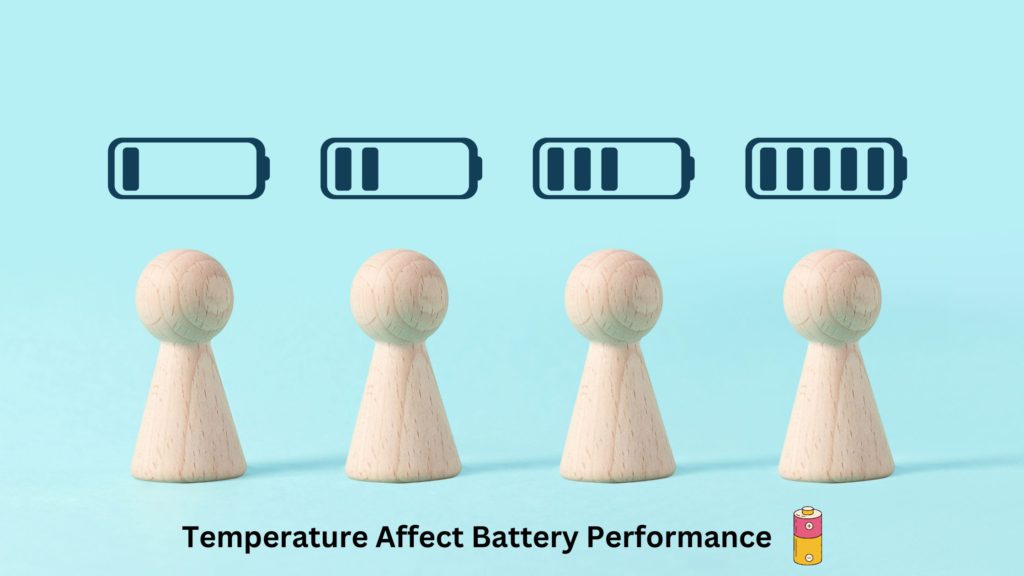Temperatures Affect Battery Performance
The temperature may have a significant impact on battery performance making it one of the most crucial things to take into account when utilizing batteries in a variety of applications. Understanding how temperature affects battery performance is crucial whether you’re using a battery in a smartphone, home inverter system, car, or a bigger system like a solar energy storage system. In this blog, we’ll explore the numerous ways that varying temperatures impact battery performance as well as the steps you can take to ensure that your battery operates at its best no matter the temperature.
At Low Temperatures,
Batteries function substantially worse in colder temperatures. As the temperature decreases, the chemical processes that power the battery become less efficient, making it more challenging for the battery to produce the necessary power output. Longer charging times and decreased capacity may result from this. The battery may occasionally not charge at all or may drain more quickly, which reduces its effectiveness. Low temperatures can also cause the battery’s internal resistance to rising, decreasing the battery’s overall performance.
At High Temperatures,
High temperatures have the potential to degrade batteries much more than low temperatures do. High temperatures can hasten the aging process of the battery, resulting in a gradual loss of capacity. Furthermore, high temperatures can result in the electrolyte evaporating and leaking, harming both the battery and the object it powers. High temperatures can also cause the battery’s internal resistance to rising, which will decrease the battery’s performance and voltage output.
At Extreme Temperatures,
Batteries are particularly vulnerable to damage from severe temperatures, such as excessively hot or cold conditions. The inner part of the battery may change when the temperature exceeds the extremely high or low limits of the ambient temperature, which may reduce capacity and raise internal resistance. In severe circumstances, the battery may suffer irreparable damage and no longer function.

Effect on Various Battery Types
It’s critical to comprehend how temperature affects the batteries you’re using since different battery types are impacted by temperature in different ways. For instance, lead-acid batteries are extremely sensitive to temperature and can perform much worse at both low and high temperatures. On the other hand, lithium-ion batteries are less sensitive to temperature, although they still perform worse at low temperatures. Furthermore, extremely high temperatures have a greater tendency to harm lithium-ion battery.
Also Read Pro- Tips To Maintain Inverter Battery Life
Preserving Optimal Performance in Various Climates
It’s crucial to store and utilize batteries within the manufacturer-recommended temperature range in order to preserve optimal battery performance under various temperature circumstances. The majority of the time, the battery’s safe operating temperature range will be specified by the manufacturer. It’s crucial to select a battery that is specially made for high-temperature applications if you’re putting it in a gadget that will be subjected to high temperatures. It’s also crucial to keep an eye on the battery’s temperature and, if required, take action to lessen its exposure to extreme heat.
Guidelines to Keep Batteries Secure in Various Temperatures
- Manufacturer Specified Range: Battery storage should take place within the temperature range recommended by the manufacturer in order to maintain optimal performance and avoid damage from excessive temperatures.
- Utilize Temperature-Controlled Storage: To safeguard batteries from excessive temperature changes, it is advised to use a temperature-controlled storage room when keeping batteries for an extended length of time.
- Keep Away From Direct Sunlight: When using batteries direct sunlight can raise the temperature of the battery, which might lead to damage and reduce performance.
- Use Battery Cases or Insulation: It is advised to use a battery case or insulation when utilizing batteries in high-temperature situations to assist regulate the battery’s temperature and avoid damage.
- Monitor Battery Temperature: By keeping an eye on the battery’s temperature, you can spot any temperature changes and, if required, take steps to limit your exposure to extreme heat.
- Pick the Appropriate Battery for the Job: It’s crucial to pick a battery that is made for the temperature range in which it will be used when choosing a battery for a particular job.
- Avoid Overcharging or Over Discharging: batteries because doing so can raise their temperature and compromise their performance as well as potentially cause harm.

You can make sure that your batteries are secure and function well in a variety of temperature ranges by paying attention to the above suggestions.
Last Words
The temperature must be taken into account while utilizing batteries because it may significantly affect their performance. For your battery to deliver dependable performance and long service life, it is crucial to understand how the effects of temperatures on the battery impact its performance and to take precautions to ensure maximum battery performance in varied temperature circumstances. No matter the temperature conditions your battery is subjected to, by using these suggestions, you may improve its performance and lifespan.
Follow us on @batteryinudaipur

